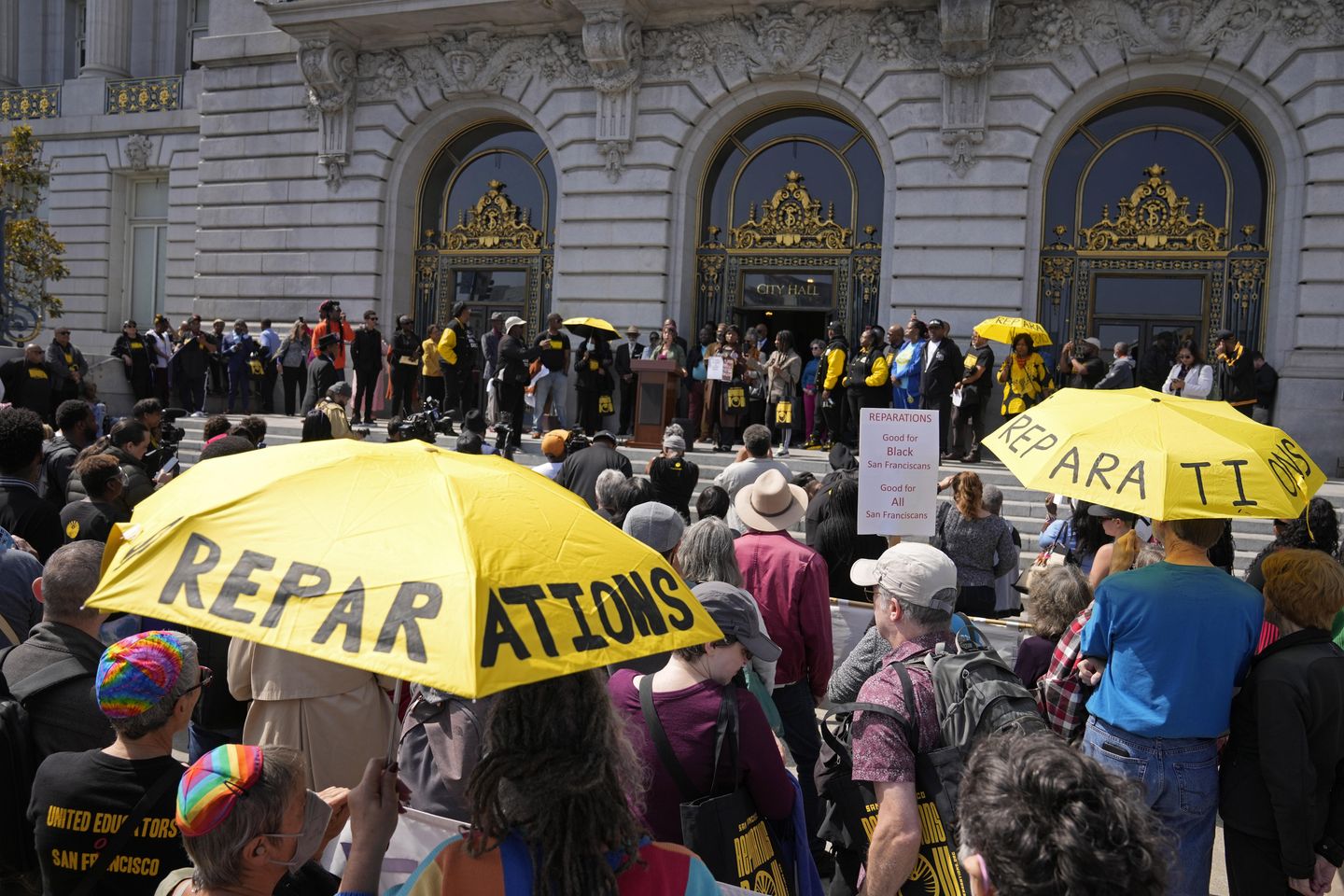California Governor Gavin Newsom signed a groundbreaking law on Thursday, officially apologizing for slavery and recognizing its lasting impact on Black Americans in the state. This historic move marks a significant step towards acknowledging the injustices of the past and working towards healing and reconciliation.
The law, known as Assembly Bill 3121, was introduced by Assemblywoman Shirley Weber of San Diego and unanimously passed by the state legislature. It establishes a task force to study and develop proposals for reparations for the descendants of enslaved people in California. The task force will also examine the ongoing disparities and inequalities faced by Black Americans in the state as a result of slavery and systemic racism.
Governor Newsom praised the passage of the law as a long overdue acknowledgment of California’s role in perpetuating slavery and discrimination. He stated, “As a nation, we can only truly move forward when we acknowledge and address the wrongs of the past. This law is a critical step towards recognizing the harm that has been done to Black Californians and working towards a more just and equitable future.”
The signing of AB 3121 comes at a time of heightened awareness and activism around issues of racial justice and equality in the United States. The Black Lives Matter movement has brought renewed attention to the legacy of slavery and the ongoing struggles faced by Black communities in America. Calls for reparations for the descendants of enslaved people have grown louder in recent years, with many advocates arguing that the economic and social disparities faced by Black Americans today are directly linked to the legacy of slavery.
The task force established by AB 3121 will be composed of nine members, including experts in civil rights, racial justice, and African American history. The task force will hold public hearings and gather input from community members to develop recommendations for reparations programs that address the historic and ongoing harms of slavery. The law also requires the task force to submit a report to the governor and the state legislature by June 2023.
Assemblywoman Weber, who has been a leading voice in the fight for reparations in California, hailed the passage of AB 3121 as a historic moment for the state. She stated, “For too long, the contributions and sacrifices of Black Americans have been ignored and forgotten. This law is a critical step towards acknowledging the injustices of the past and working towards a more inclusive and equitable future for all Californians.”
The signing of AB 3121 has been met with widespread support from civil rights organizations, community leaders, and activists across the state. The NAACP called it a “monumental victory for racial justice” and urged other states to follow California’s lead in addressing the legacy of slavery. The ACLU of California praised the law as an important step towards addressing the systemic racism that continues to affect Black communities in the state.
While the passage of AB 3121 represents a significant milestone in the fight for reparations, advocates emphasize that there is still much work to be done to achieve true racial equity and justice. The task force will face many challenges in developing proposals for reparations that are comprehensive, effective, and equitable. There will likely be debates and disagreements over the form and scope of reparations programs, as well as questions about funding and implementation.
Despite these challenges, supporters of reparations are hopeful that the passage of AB 3121 will spark a national conversation about the legacy of slavery and the need for reparative justice. They see California’s apology for slavery as a powerful symbol of the state’s commitment to confronting its past and building a more just and equitable future for all its residents. They believe that reparations for the descendants of enslaved people are not only a matter of justice but also a necessary step towards healing and reconciliation in a country still grappling with the legacies of slavery and racism.
In signing AB 3121, Governor Newsom acknowledged the importance of reparations in addressing the historic and ongoing harms of slavery. He stated, “Reparations are not just about compensating individuals for past injustices. They are about acknowledging the systemic racism and discrimination that continue to affect Black Americans today. By taking this step towards reparative justice, California is sending a powerful message that we are committed to confronting our past and building a more inclusive and equitable future for all our residents.”
As the task force established by AB 3121 begins its work, all eyes will be on California to see how it grapples with the complex and contentious issue of reparations. The state’s efforts to address the legacy of slavery and systemic racism will undoubtedly serve as a model for other states and communities seeking to achieve racial equity and justice. With the signing of this historic law, California has taken a bold and important step towards acknowledging the injustices of the past and working towards a more just and equitable future for all its residents.









